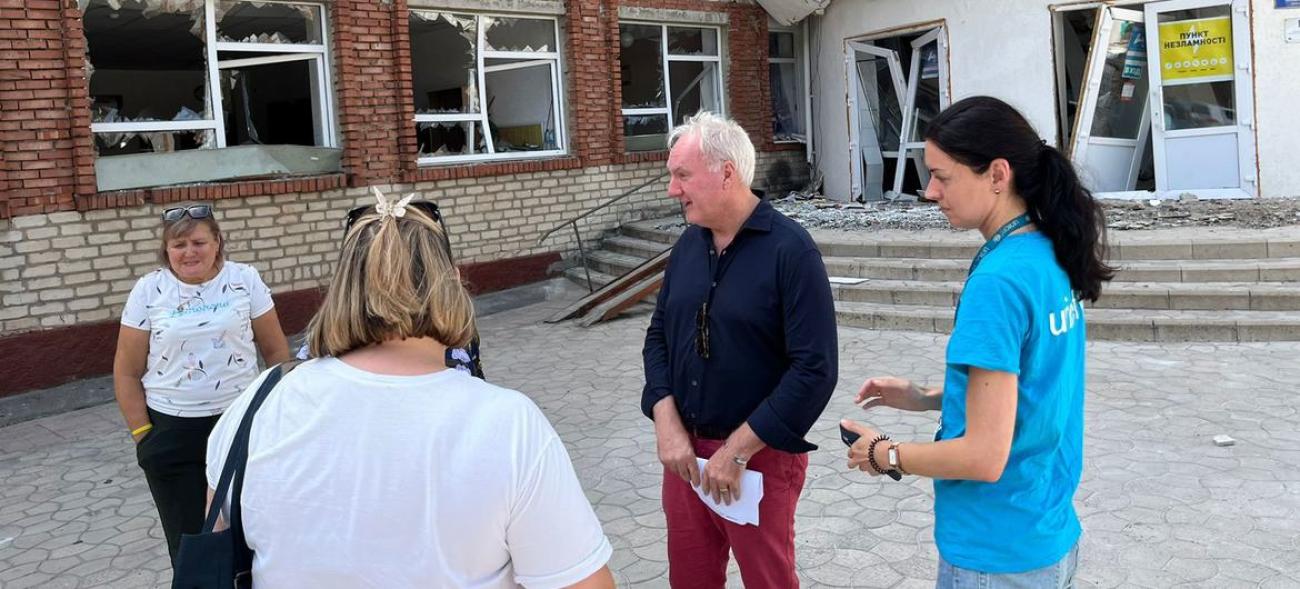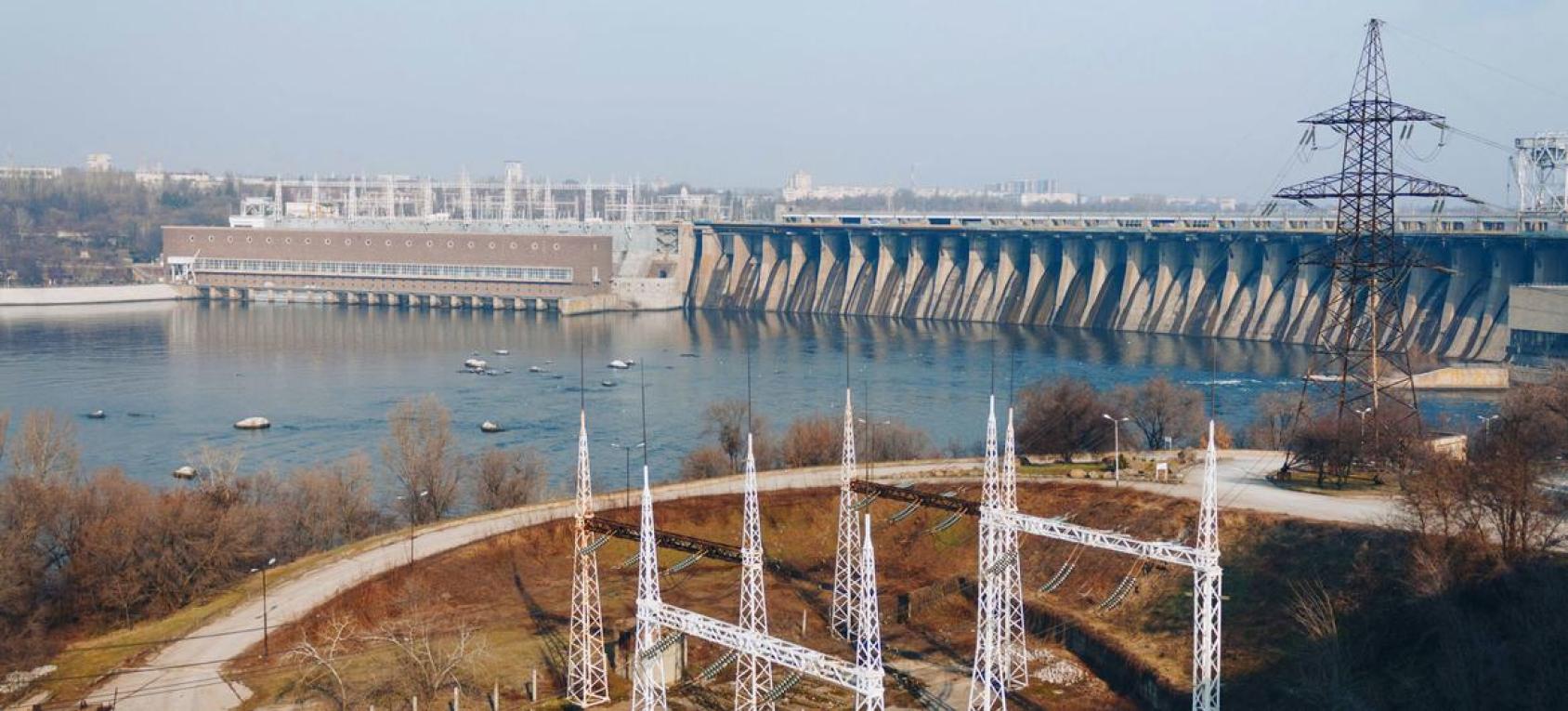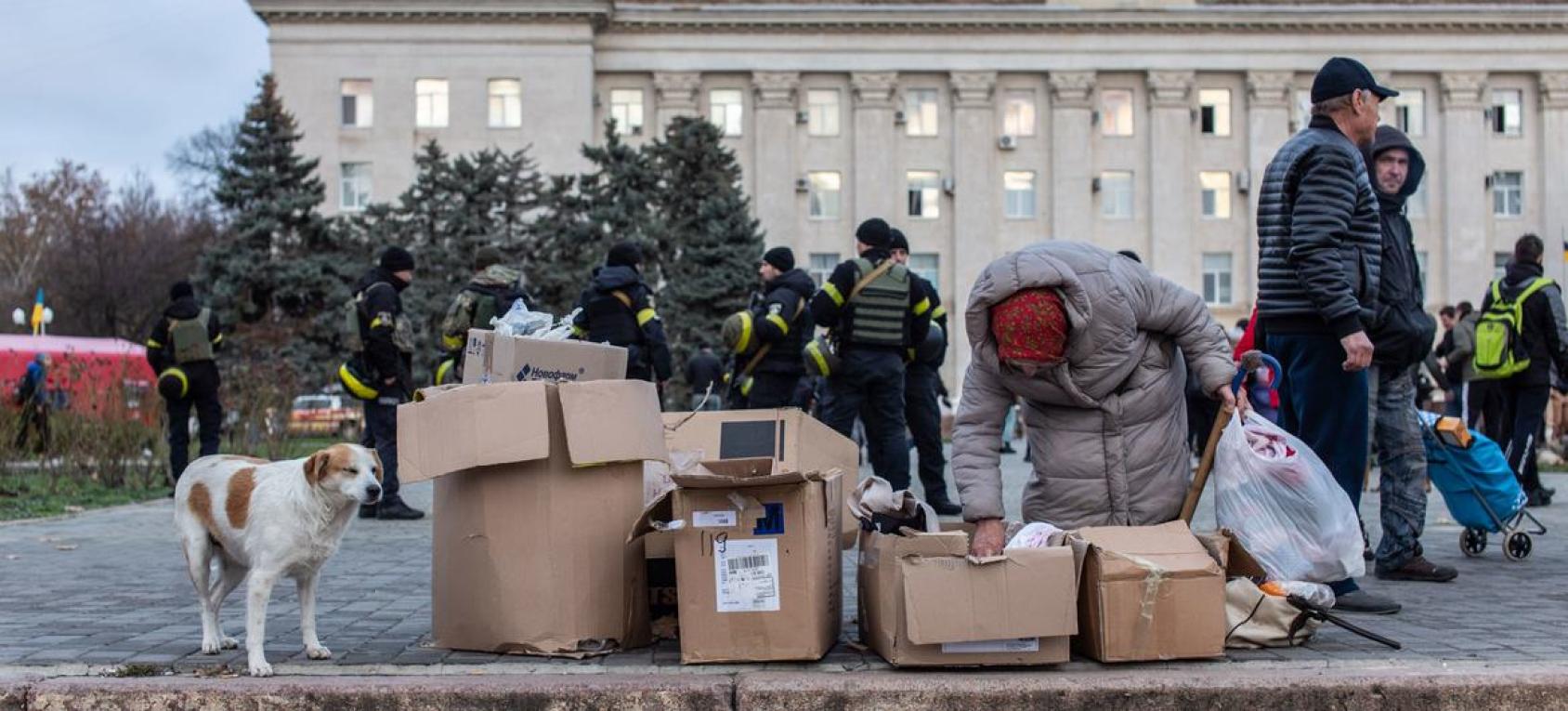Interview: Ukrainians have a remarkable determination to rebuild their lives – RC Schmale

Despite facing a third brutal winter amidst relentless attacks on civilian infrastructure, Ukrainians demonstrate an unwavering determination to survive and rebuild. Resident and Humanitarian Coordinator Matthias Schmale shares his experiences from the frontlines, highlighting the resilience of the Ukrainian people and the UN's efforts to provide critical support in the face of dwindling global support. From ensuring access to warmth and healthcare to addressing the psychological impact of the conflict and supporting early recovery efforts like de-mining to enable agricultural production, RC Schmale paints a vivid picture of both the challenges and the inspiring spirit he encounters in Ukraine.
In an interview with UN News he discusses the crucial balance between immediate humanitarian relief and long-term development initiatives to support Ukraine through the ongoing crisis and beyond.
Excerpts of the interview
UN News: The third winter of war is almost here. So many challenges ahead, given the energy infrastructure is under constant attacks. How does the UN help Ukrainians prepare?
Matthias Schmale: There are about 112,000 people living on so called collective sites. Our focus is on supporting these people in collective sites. A lot of what we're doing has to do with keeping people warm. So, there is assistance in the form of heating appliances, in the form of fuel, wood, coal and gas.
We planned earlier than last year, and we've started delivery earlier than last year and we've already reached 26,000 people as of 30 September – in-kind and cash assistance, the stoves, the warm clothes, the fuel. Cash assistance is a dignified form of assisting because it gives people a choice over what to spend their money on. And in Ukraine close to the frontline, of course, there are disrupted markets but most of the country still has very much functioning markets.

UN News: Ukrainian officials report that all thermal power plants and almost all hydroelectric capacity in Ukraine is gone. What are the consequences for civilians?
Matthias Schmale: So indeed, my understanding also is that 60 per cent of Ukraine's own energy production capacity partially or completely destroyed. It's getting quite cold. A big priority, a big impact of the destroyed energy capacity is that people don't have access to heating. And of course, heating comes with access to water and sometimes it comes with getting water because pumping stations need to be fueled.
So very clearly the impact of the energy destruction is severe on civilians. Our colleagues in human rights, the Office of the Commissioner (OHCHR), recently published a report where they demonstrated that the hits on the energy sector have direct consequences for civilians. I mentioned already earlier that we are trying to assist the government in reaching 1.8 million people, so we see 1.8 million people who are particularly vulnerable. There's over 3 million internally displaced people in Ukraine. And amongst those, they are the ones that are particularly vulnerable in collective shelters.
I've traveled in my first two months here around the country quite a bit, along the frontline. I was also recently in the south visiting Odesa, Mykolaiv and Kherson. It's not just rural areas and the areas along the frontline that are affected. People that live in high rise buildings are also of concern in cities. We are working on seeing whether solutions can be found.
UN News: What are some other major concerns and challenges today, like healthcare or education? I know it's too much to mention everything, but still the major concerns.
Matthias Schmale: I would start actually with education, with the millions of children whose education has been interrupted. And during my travels around the country, many of education officials and our own colleagues from UN Children's Fund (UNICEF) and UN Educational, Scientific and Cultural Organization (UNESCO) have pointed out, that for younger children, not being in school and not having access to education has been a reality for almost six years, because of the COVID pandemic.
Colleagues from across the UN system are trying to help. We're also trying to help with safe spaces in schools where they are open. And one particularly fascinating experience for me was going to Kharkiv, where six schools are now functioning in underground metro stations - some 5,000 to 6,000 children, I think, In Kharkiv are actually attending schools underground.
There is a lot of healthcare infrastructure that was destroyed. My World Health Organization (WHO) colleague has mentioned the number – over a thousand health centres and hospitals that have been hit either completely or partially destroyed. So, infrastructure is affected. Our colleagues also recently published a report that shows the impact of damage in the energy sector on primary health centres. It's not just individuals and families that need to have energy and water. When you take in the places where they live, but it's all also public service institutions that needs to have access to energy. So, a concern is how to keep primary health care going and to help rebuild the health sector.
Then another issue I would like to mention is that Ukraine is now one of, if not the most heavily mined country in the world. And so, this is a big issue. And a lot of the mining, of course, is along the frontline.
And there is some fascinating work going on in agricultural production. Colleagues in the World Food Programme (WFP) and the Food and Agriculture Organization (FAO) help identify places and to screen them (for landmines) and help farmers to get back on their feet and recover agricultural production.
When I first heard FAO and WFP are involved in demining, I thought this was mission creep (when UN agencies go beyond their designated mandates). But now I am convinced that this is good work, that they understand what they are doing, they are already involved in terms of an immediate response to the war, which is supporting de-mining, but also the early recovery, helping farmers to get back into de-mined fields.
One final thing I want to mention is the psychological impact on our team. Kyiv, where I am currently sitting, has a fairly good defence system. So, at the moment there's relatively few direct hits and damage. But there is a huge psychological impact. There are periods where almost every night air siren warnings go off disrupting sleep. And of course, the constant worry; will rockets hit?

UN News: You've taken office just three months ago, but already you have visited many frontline towns. What is life like there and how do people manage to cope?
Matthias Schmale: I don't like the term, but we use it a lot and that’s the resilience of Ukraine's citizens. It's remarkable how people continue to cope. They start rebuilding their lives. For example, I remember recently in Kharkiv Oblast, I met a woman and her family who were gone for a while and have come back. With a remarkable determination they started to rebuild their lives. That is really impressive. I've been to quite a few conflict zones around the world. And usually, the sense is that we have to wait, till the fighting and the war is over before we seriously get into recovery and rebuilding lives and infrastructure. Whereas here in Ukraine, I am really positively impressed by the determination of citizens and the government to start repairing and rebuilding as soon as opportunities arise.
Now, of course, I think it would be a mistake if I just painted a rosy picture around resilience. I have also, of course, seen some very desperate people and situations, including the lady I mentioned and her family who have come back and are rebuilding their life.
As we were talking, she was several times close to tears, describing how they survived the attacks two years ago, how it impacted their mental health, being away from their home for a year, and coming back to see the destruction of their home. So, I'm not trying to paint a rosy picture. I'm trying to pay tribute to the people and their determination to survive and rebuild.
I was particularly concerned earlier this week when I visited Kherson in the south, which is the capital city of a region under constant shelling. So, it is in the middle of an active war zone. And there, in recent weeks, the armed forces of the Russian Federation have also added drone attacks, and drone attacks are, of course, precise. And it clearly shows in the footage and in images that actually suggest that there are deliberate attacks on civilians and civilian infrastructure.
People in Kherson told me that sometimes the drones don't strike, but just follow them around, because you can hear the sound. The trauma of being followed by a drone and not knowing whether it is close.
Read the full interview with UN News here.













